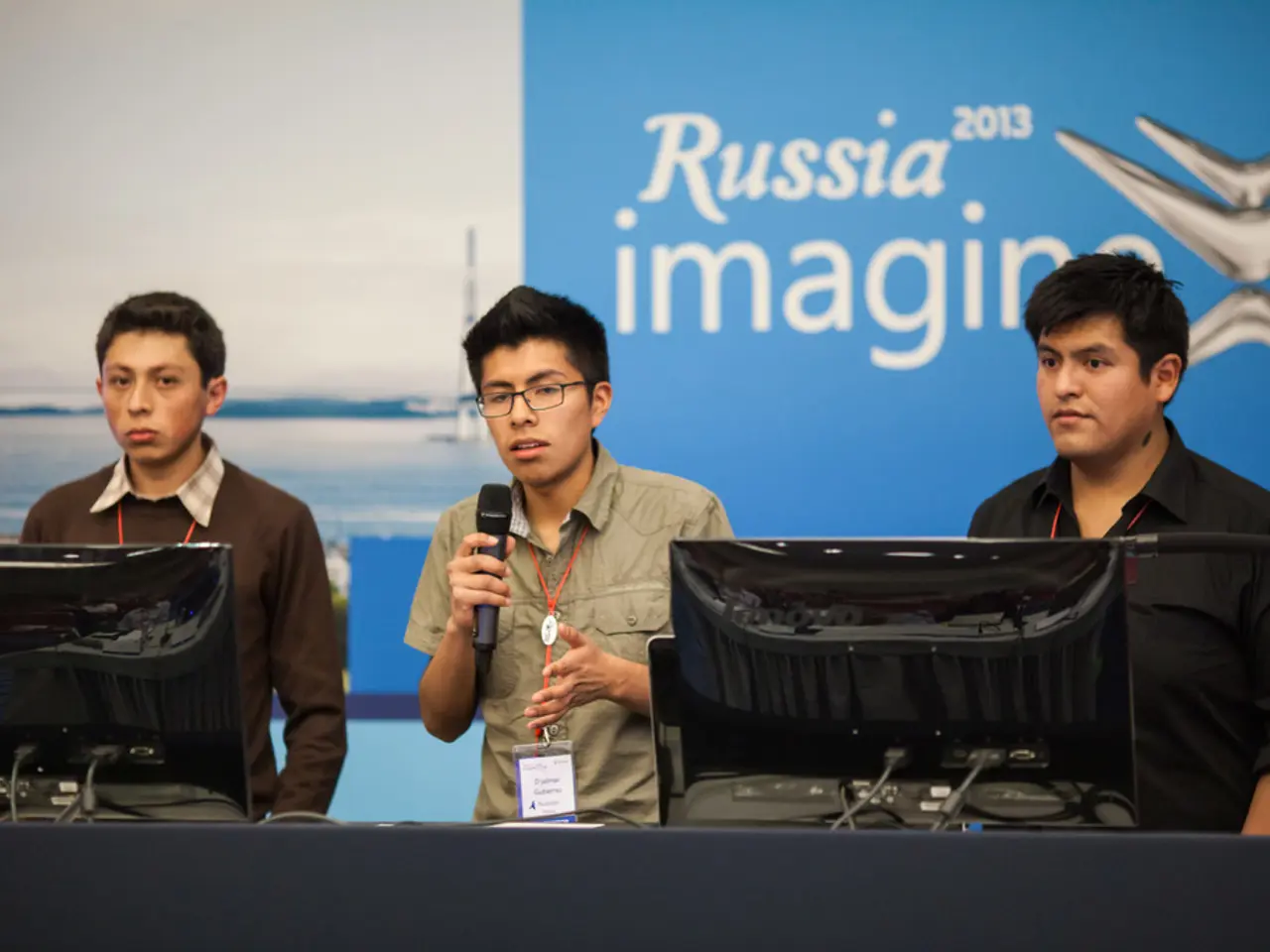US Stalls G7 Critique on Russia at Summit, Sparking Disagreement
- *
U.S. hindered endorsement of Ukraine's statement during G7 summit meeting. - G7 summit: United States thwarts Ukraine declaration approval
The first day of the G7 summit stirred controversy when the US, in Donald Trump's absence, thwarted a collective condemnation of Russia that had the backing of Germany, France, Italy, Britain, Japan, Canada, and guest Ukraine. Apparently, the US delegation wished to downplay the confrontational language, preferring to preserve its mediating role with Vladimir Putin.
Ukrainian President Volodymyr Selenskyj was in attendance, anticipating a pre-scheduled meeting with Trump before the NATO summit in The Hague next week. However, these plans were scrapped due to Trump's early departure.
German Chancellor Friedrich Merz (CDU) expressed satisfaction with the summit despite his return to Berlin. He declared that there was a consensus among the industrialized nations to continue offering military support to Ukraine. Canadian Prime Minister Mark Carney pledged additional military aid to Kyiv, promising billions more for Ukraine's defense.
Trump, who had already dismissed European demands for stronger sanctions on Russia during the summit's early hours, left with "cautious optimism" that Washington might impose further punitive measures on Moscow. Despite the absence of a united statement on Ukraine, the G7 issued six joint declarations on various topics, including migration, artificial intelligence, and critical raw materials.
The summit was overshadowed by the Israel-Iran conflict. Post-summit, Trump intensified his stance against Iran, demanding surrender from Tehran and consulting with the National Security Council, sparking speculation about potential US military intervention against Iran.
Merz expressed empathy for Israel's actions in the region, likening the Israelis to the "dirty workers" aiding Western allies. G7 countries stressed the importance of de-escalation in the conflict, while acknowledging Israel's right to defend itself and emphasizing Iran's disarmament of nuclear weapons.
Trump's early exit also hindered Merz's plan to pacify the US President, in conjunction with French President Emmanuel Macron and Italian Prime Minister Giorgia Meloni, regarding the ongoing trade dispute with the European Union. Trump insisted that the EU was merely talking without presenting a fair deal. The deadline for an agreement set by Trump expires on July 9.
- Russia
- Canada
- G7 Summit
- Ukraine
- USA
- Donald Trump
- Iran
- Friedrich Merz
- Industrialized Nation
- Israel
- Germany
- France
- Volodymyr Selenskyj
- US President
- Italy
- Britain
- Japan
- NATO Summit
- The Hague
- CDU
Insight:
During the 2025 G7 Summit, the US declined to support a joint statement condemning Russia due to objections to harsh language that would have criticized Putin's actions. This stance was met with disappointment by Canada and Germany, who wanted a more assertive stance against Russia. As a result, Canada offered a substantial military aid package to Ukraine, and the G7 ultimately issued a weaker declaration due to US opposition. This situation underscored the growing rift between the US and its traditional allies in addressing the Russia-Ukraine war at an international summit. (Source: [1][3][4])
- Despite the United States blocking a collective condemnation of Russia at the G7 summit, industrialized nations like Germany, Canada, and others, including France, Italy, Britain, Japan, and Ukraine, continued to advocate for military support for Ukraine.
- In the realm of policy and legislation, the G7 summit also witnessed disagreements between the US and the European Union on trade matters, with the US president expressing dissatisfaction over what he perceived as the EU's lack of a fair deal, further straining relations.





